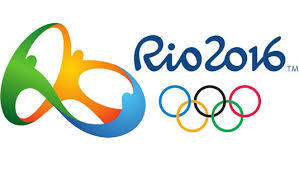
Aug 17, 2016
Blog Market Research Marketing Your Business During Major World Events - Part One
Some things are just better when enjoyed with other people. We are social beings, and there is both a thrill and a primal satisfaction in sharing an experience. Two examples are watching an anticipated film in a theater full of eager moviegoers, or celebrating your hometown team’s victory in a packed stadium. In both cases, the energy and excitement of others fuels and heightens the emotional impact to the individual.
Major world events, like sporting events such as the Olympics or FIFA World Cup are a rare opportunity to tap into a collective excitement that touches millions of people simultaneously, even if they are spread apart geographically. A solid marketing strategy that anticipates and piggybacks on the accompanying fervor can earn a significant amount of goodwill and new business for your company.
Before you decide whether to market your company or business during a major world event, consider how your customers intersect with the event. For example, a local marathon is a fantastic time to entice people to visit your shop if you sell running shoes. If you sell soccer balls, then the World Cup is an obvious time to reach out to new and current customers. However, it is not always so clear cut for every company. What about coffee chains, automakers, and shipping companies? Surely a significant percentage of their customers enjoy soccer and would be just as excited for an international competition. Market research can help you to understand who your customers are, and what they interested in, and can help to identify ways to make an impact at the peak of interest in an event.
In addition, you will need to be sure that the event is a good match for your brand and company. You may wish to tread lightly if your company or product has a somewhat controversial history related to the event or activity, or if you provide a product that is not aligned with the intention, or spirit of, the event. For example, advertising ice cream or cupcakes may be seen as insensitive or oblivious during an event or campaign dedicated to healthy eating.
There may be no such thing as bad publicity, but it can certainly result in some lasting headaches if there is a public backlash, especially through the worldwide net of social media. During the 2015 Super Bowl halftime, a Nationwide Insurance commercial featured a child explaining that they would never grow up because they had died of a household accident. The company had expected to shake people up with their message, however the general audience response was one of outright horror and anger at the company for blindsiding them during a light-hearted entertainment event with such intense emotional stress. The ad was widely mocked on social media for days afterward, and the company received thousands of complaints from angry customers. Personally, I still have not fully recovered from the commercial, and continue to have a vaguely negative feeling toward the company. Admittedly, however, I do still recall the tag line. If you want to make a splash, be sure that you are ready and willing to deal with some blowback.
Once you have considered what events your customers might be interested in, and whether it is a good match for your company, there are several marketing strategies to capitalize on the event, discussed in part two.

Amending the Pesticide Trade Business China and the U.S. are the foremost export...

Introduction The electric vehicle (EV) revolution is not solely about batteries ...

In the ever-evolving landscape of technology, pressure sensors have emerged as p...

We are your trusted research partner, providing actionable insights and custom consulting across life sciences, advanced materials, and technology. Allow BCC Research to nurture your smartest business decisions today, tomorrow, and beyond.
Contact UsBCC Research provides objective, unbiased measurement and assessment of market opportunities with detailed market research reports. Our experienced industry analysts assess growth opportunities, market sizing, technologies, applications, supply chains and companies with the singular goal of helping you make informed business decisions, free of noise and hype.